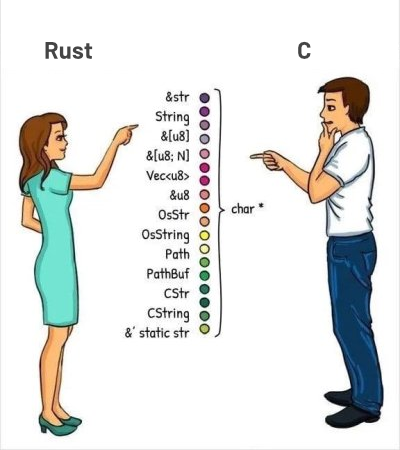Without any ::prelude and some void* arguments.
Maybe you have thoughts about it.
The URL is just a sample of “why” but not “because”.
I have my own preference but will keep it inside my mind to not burn a tornado that will erase me from the matrix of the world.
P.S.: I think C is faster, more powerful, and more elegant. I like it more than Rust.



I think this is honestly the crux of Drew’s argument.
If a compiler is to prove safety of a program in a language with low level memory management, then there is a lot of inherent complexity. Drew doesn’t like complexity, therefore Drew doesn’t like safety.
All his other arguments have some meat, though they’re debatable. This one statement is the most surprising and probably the only unacceptable stance in that entire article. Rust is just starting to be more widely used - and that success can be attributed to how much people and companies are fed up with bugs caused by unsupervised manual memory management.
C didn’t have that sort of machine supervision for safety - but then again, computers simply weren’t powerful enough to do the safety analysis back when C was created. Retrofitting an analyzer isn’t possible without changing the language completely. But today the situation is different. We have vastly more powerful computers and static safety analysis isn’t a limiting factor for newer languages. Insisting that unsafe programming is acceptable is a very regressive stance. Look for a safety paradigm with less cognitive overhead to the programmer? That’s worthwhile. But safety is an absolute necessity. If decades of programming has taught us anything, it’s that even the most knowledgeable coders can make mistakes with disastrous consequences due to momentary lapses in judgment. There’s no justification in not using the computing power at our disposal to catch such mistakes when they happen.